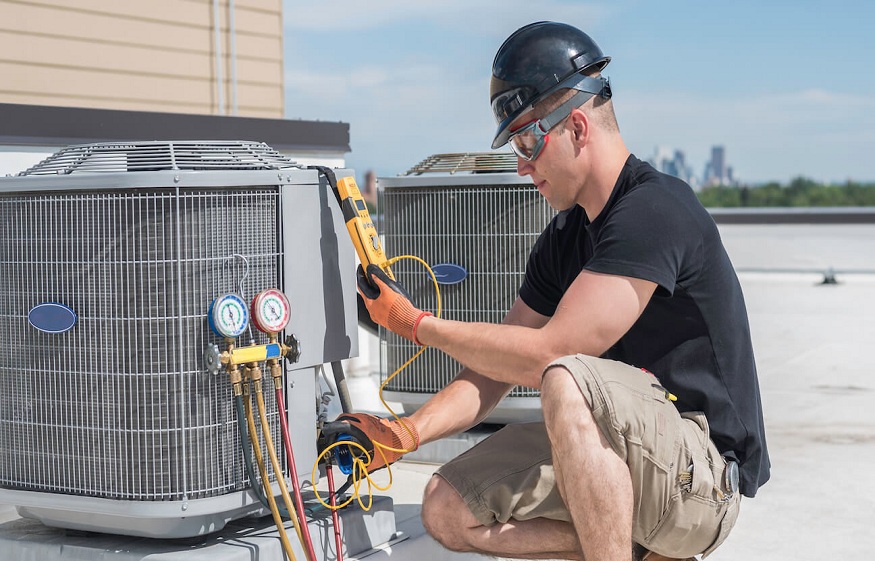It’s normal for homeowners to have plenty of questions for their local hvac contractors, because after all, our HVAC systems truly are our most valuable household appliances.
Below are some of the frequently asked questions (FAQs) that HVAC teams typically receive from home and business owners:
How frequently should HVAC air filters be changed?
The answer to this question will largely vary depending upon what type of filters you have.
The cheapest filters in today’s marketplace typically need to be switched on a monthly basis, and more high-quality filters need to be switched about every three months.
There are also some top-quality media filters that only need to be replaced on a yearly basis.
Will a bigger HVAC unit perform better for my household?
What’s important for homeowners to remember is that they need to purchase the right sized HVAC unit for their household, so simply purchasing a bigger unit won’t necessarily lead to better performance.
Large AC systems can cool down a home very quickly, but they might not be as effective when it comes to tasks like eliminating indoor humidity. These larger units will also more likely experience shorter cycles. Too much indoor humidity can be problematic, because it can potentially result in mold and mildew development.
How long will my HVAC system last?
HVAC systems can typically last upwards of 10-15 years, but it’s important to remember how these systems often lose their efficiency as they get closer to the ends of their functional lifetimes.
That’s why most homeowners should start looking for a new system around the 10-year mark of ownership, but HVAC systems can last upwards of 20 years when people invest in seasonal maintenance appointments and other types of general upkeep.
Why does my HVAC system need to have perfectly matched components?
Your HVAC system needs matched components because this will help you to ensure maximum efficiency, performance, and indoor comfort.
Matched components will help your system when it comes to maintaining cycling times and managing your property’s indoor humidity levels. Matched components are also very useful when it comes to preventing abnormally high energy bills, so ensuring matched components will always help you to keep peak efficiency.
How often should my HVAC system be serviced?
It’s typically recommended to have your HVAC system serviced on at least a yearly basis.
Investing in this type of routine maintenance will help you save money on potential repairs, and it’ll undoubtedly go a long way to ensure your unit’s overall efficiency and durability. The more you put off HVAC maintenance, the more likely you’ll experience rather significant problems in the future—including full break downs.
So, you can actually end up saving money by servicing your HVAC system on a yearly basis with your trusted technicians!
How can my home’s indoor air quality be improved?
The best thing a homeowner can do to improve their indoor air quality is prevent bad air from entering their properties. This means homeowners must properly seal their duct systems.
Once you’ve properly sealed up your duct system, you can then begin cleaning it up and making your air filtration system more efficient.
What are some ways that I can lower my energy costs?
These types of tips will largely depend upon your specific property. In many scenarios, adding insulation will go a long way to reduce energy costs, but in other situations, you may need to replace your entire HVAC system and other energy-inefficient appliances.
Window replacements can also be helpful, but the best thing any homeowner can do is conduct a comprehensive property overview to figure out which energy-saving techniques make the most sense for you.
Contact The Beehive Heating & Air Team When You’re Looking For Top-Quality HVAC Contactors!
It’s perfectly normal for home and business owners to have a lot of questions on their minds when they’re on the hunt for new HVAC contractors, and the above FAQs are just the beginning in terms of what questions you may need answered.
If you have any other questions that you’d like to ask directly to hvac contractors, go to the link at the top of this page and speak directly with the specialists at Beehive Heating & Air!




